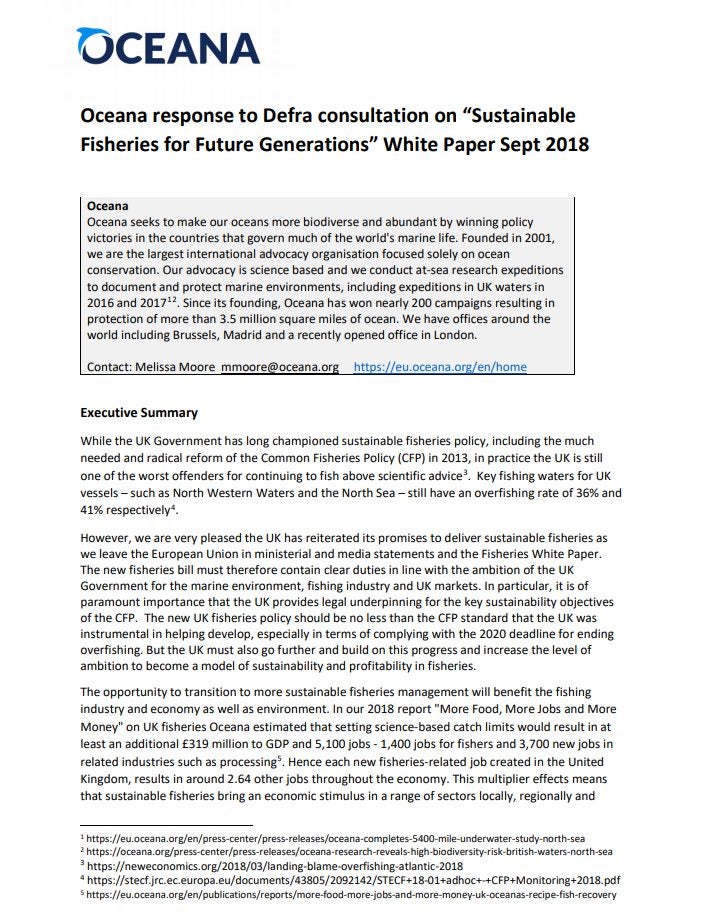Report | October 25, 2018
Oceana response to Defra consultation on “Sustainable Fisheries for Future Generations” White Paper Sept 2018
Executive Summary
While the UK Government has long championed sustainable fisheries policy, including the much needed and radical reform of the Common Fisheries Policy (CFP) in 2013, in practice the UK is still one of the worst offenders for continuing to fish above scientific advice3. Key fishing waters for UK vessels – such as North Western Waters and the North Sea – still have an overfishing rate of 36% and 41% respectively4 . However, we are very pleased the UK has reiterated its promises to deliver sustainable fisheries as we leave the European Union in ministerial and media statements and the Fisheries White Paper. The new fisheries bill must therefore contain clear duties in line with the ambition of the UK Government for the marine environment, fishing industry and UK markets. In particular, it is of paramount importance that the UK provides legal underpinning for the key sustainability objectives of the CFP. The new UK fisheries policy should be no less than the CFP standard that the UK was instrumental in helping develop, especially in terms of complying with the 2020 deadline for ending overfishing. But the UK must also go further and build on this progress and increase the level of ambition to become a model of sustainability and profitability in fisheries. The opportunity to transition to more sustainable fisheries management will benefit the fishing industry and economy as well as environment. In our 2018 report “More Food, More Jobs and More Money” on UK fisheries Oceana estimated that setting science-based catch limits would result in at least an additional £319 million to GDP and 5,100 jobs – 1,400 jobs for fishers and 3,700 new jobs in related industries such as processing5 . Hence each new fisheries-related job created in the United Kingdom, results in around 2.64 other jobs throughout the economy…


